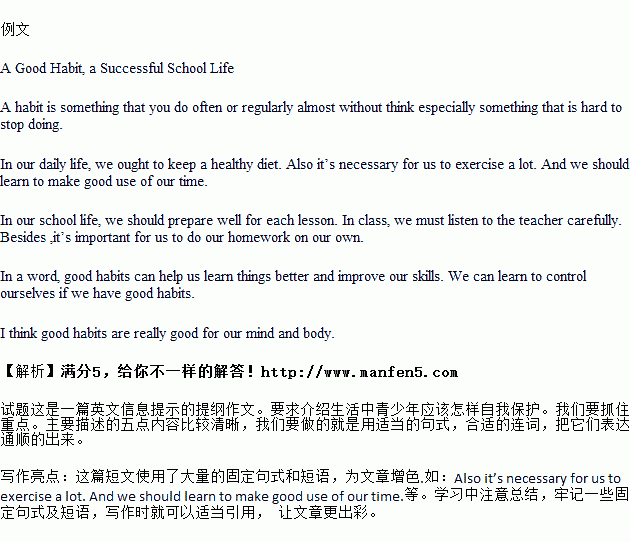��Ŀ����
�������õ�����ϰ�ߺ�ѧϰϰ�ߣ���������ÿһλѧ���ɳ����а������������ʾҪ����Ӣ��дһƪ����90���ҵĶ��ģ�������ѧУ��վ�ϡ�
��ʾҪ�㣺
��һ�����õ������ѧϰϰ�߰�����
1��������棺�ٽ�����ʳ �ھ������� �����ú�ʱ��
2����ѧϰ���棺�ٿ�ǰԤϰ ���������� �۶�����ҵ
����������ϰ�ߴ������洦����
1���������Ǹ��õ�ѧϰ֪ʶ
2��ʹ��������ܣ�ѧ�����ҿ��ơ�
������ ̸̸��ĸ���
����Ҫ��
1�������б������������ʾҪ�㣬�����ʵ����ӣ���Ҫ���롣
2������90���ң������Ѿ�д�ã��������ܴ�����
3�������������ἰ��ʵУ����������
A Good Habit, a Successful School Life
A habit is something that you do often or regularly almost without thinking,especially something that is hard to stop doing.
_________________________________________________________________________________
��ϰ��ϵ�д�
 �Ƹ�С״Ԫ�������������ϵ�д�
�Ƹ�С״Ԫ�������������ϵ�д� ����һ������ܼƻ�ϵ�д�
����һ������ܼƻ�ϵ�д�
�����Ŀ


 B.
B. C.
C.